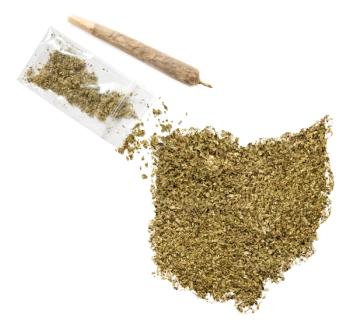
Minnesota to Begin Performing Cannabis Roadside Impairment Tests
Minnesota will begin performing roadside impairment tests for cannabis in their state.
According to a recent article in the Minnesota-based newspaper the Star Tribune (1), state officials are trying to figure out how to help enforce cannabis safety and will begin instructing law enforcement officers on how to use different testing devices to detect cannabis-impaired drivers on the road. Police officers will reportedly soon begin using saliva-based test to test for cannabis.
Minnesota, known as the North Star State, will debut the pilot project, which is a requirement in their recreational cannabis law that states that although recreational cannabis is now legal, it is still considered illegal to drive while being “high” on tetrahydrocannabinol (THC) (1,2). This new project will sift through different saliva-based testing devices to see which ones are able to distinguish cannabis use. Minnesota plans to utilize two testing tools which will be administered in 2024 by drug recognition experts.
"These are by far and away the most commonly used [testing] units across the country," said Mike Hanson, director of Minnesota's Office of Traffic Safety (1). "I would expect that by this time next month, the units will be in the field and will be in use."
As the Star Tribune reported (1), other states that have legalized cannabis have used these test methods with their law enforcement to find “probable cause.” In these instances, it is not much different from using a breathalyzer when trying to detect alcohol.
One very important thing to note, however, is that Minnesota law enforcement are not able to operate the saliva-based devices and use those test results as evidence in court or to arrest an individual (1). The Star Tribune mentioned (1) that as listed in the statute, roadside tests may only be used for “the purpose of analyzing the practicality, accuracy, and efficacy of the instrument.”
To launch this program, Minnesota will buy an estimated 100 tests which will cost them around $5000 per test (1). By February 2025, the public safety commissioner will be required to disclose the results from the pilot program to the state’s Legislature.
The state will be utilizing their drug recognition experts (DREs) to spot suspected drivers that might be driving a vehicle while high. Minnesota has more than 300 DREs with plans to increase their numbers before early 2025, when retail cannabis dispensaries are slated to open (1).
"Our goal is to put enough DREs on the road where a street cop, anywhere in the state of Minnesota, within 20 or 30 minutes … can either have a DRE on scene or at the very least have a phone consultation," Hanson explained (1). "We're being very proactive as we come up on legalization and when the dispensaries will actually open."
References
- Faircloth, R. Minnesota to Launch Roadside Impairment Test for Marijuana
https://www.startribune.com/minnesota-set-to-launch-roadside-impairment-test-for-marijuana/600321260/ (accessed Nov 21, 2023). - Cummings, C. Law Enforcement on Alert for Impaired Drivers as Marijuana Becomes Legal, Plan to Boost Drug Experts
https://www.cbsnews.com/minnesota/news/marijuana-driving-while-high/ (accessed Nov 21, 2023).
Newsletter
Unlock the latest breakthroughs in cannabis science—subscribe now to get expert insights, research, and industry updates delivered to your inbox.





